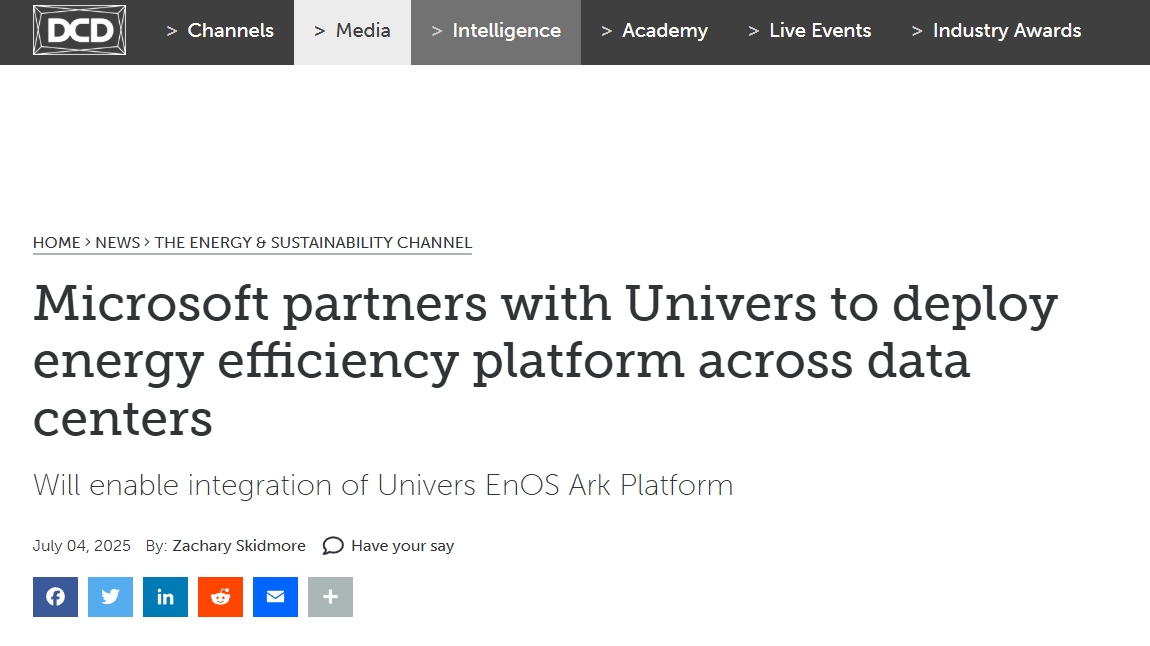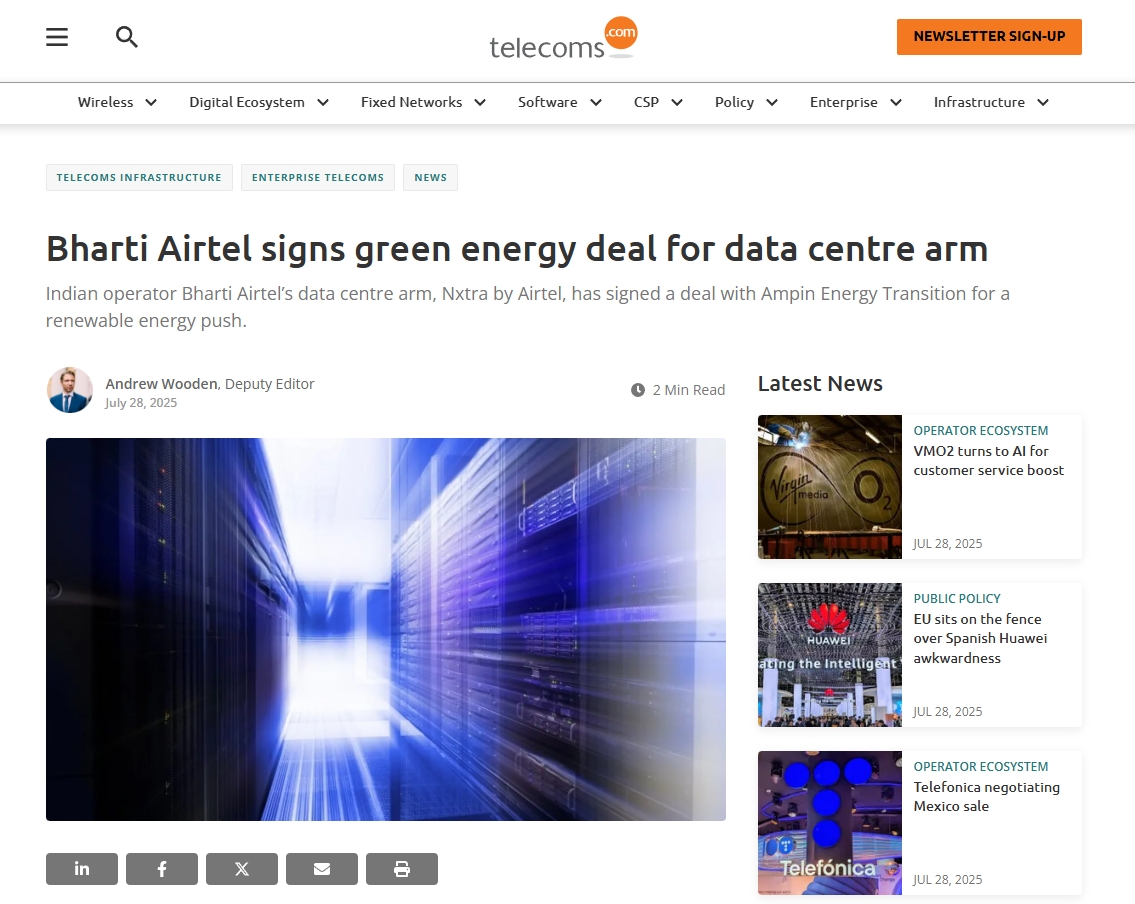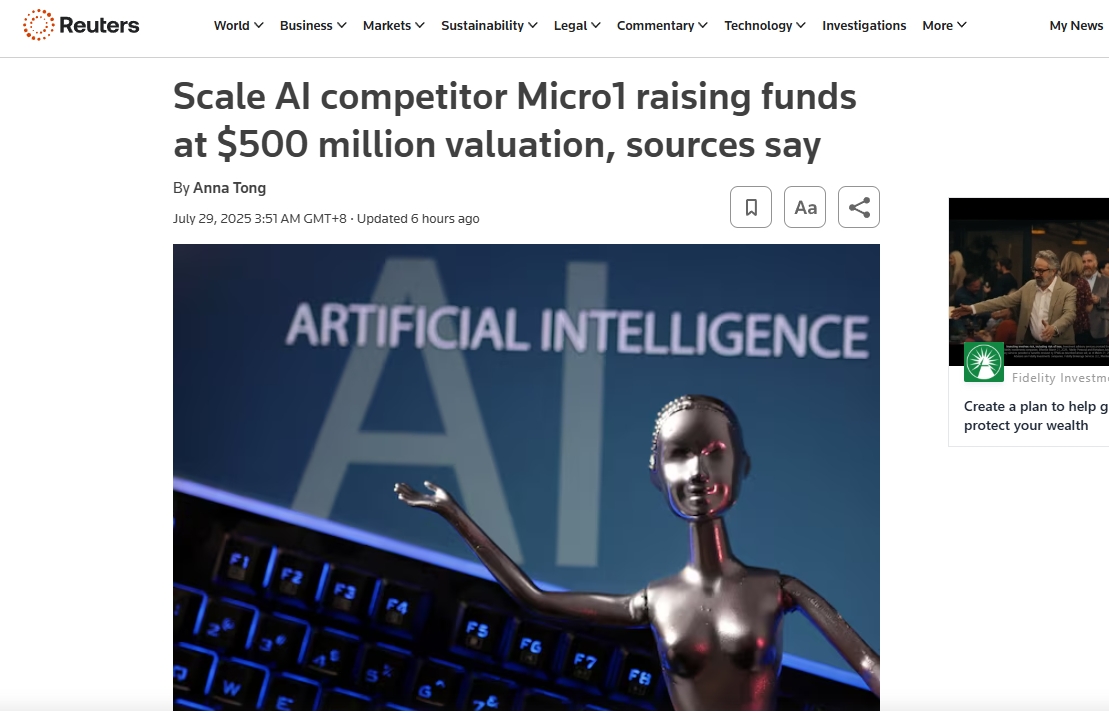Will enable integration of Univers EnOS Ark Platform
Microsoft has partnered with Univers, a Singapore-based software development firm, to explore energy enhancement measures across its data centers.
The two companies signed a Memorandum of Understanding last week, which will support the use of Microsoft AI Cloud capabilities to strengthen Univers' sustainability solutions.
In addition, the partners will support the integration of Univers’ EnOS Ark platform with Microsoft data and AI services.
The platform enables organizations to track, manage, and optimize energy use and carbon footprints. Through this deployment, the companies aim to “drive measurable impact by improving cooling efficiency, renewable energy integration, and intelligent operations within data centers worldwide.”
"This agreement reflects our belief in AI for energy and energy for AI," said Michael Ding, global executive director, Univers. "Together with Microsoft, we're demonstrating that digital innovation and climate responsibility go hand in hand."
According to Univers, the system can achieve up to 40 percent in energy savings, 20 percent in CO2 emissions, and 10 percent in productivity gains. Previous deployments of the system include with HSBC, where Univers connected Ark to legacy Building Management Systems in Singapore, Malaysia, and Hong Kong. Through the implementation of the OS, the company was able to save more than 700,000kWh of energy over three months.
The agreement with Microsoft is seemingly its first with a data center company. The company offers several other OS systems, including Microgrid, Storage, Renewables, and EV charging.
"There is no more important task in sustainability than helping customers with the energy transition. Univers and Microsoft will deliver effective and efficient use of data and AI that drives positive change," said Lewis Richards, chief sustainability officer, United Kingdom, Microsoft.
Microsoft has been making a concerted effort to improve energy efficiency measures across its data center portfolio. In its 2025 sustainability report, it highlighted the use of low-power server states, which can lower energy usage on unallocated servers by up to 35 percent. According to the company, the initiative has been expanded from thousands of servers in 2022 to nearly two million by the end of 2024.








